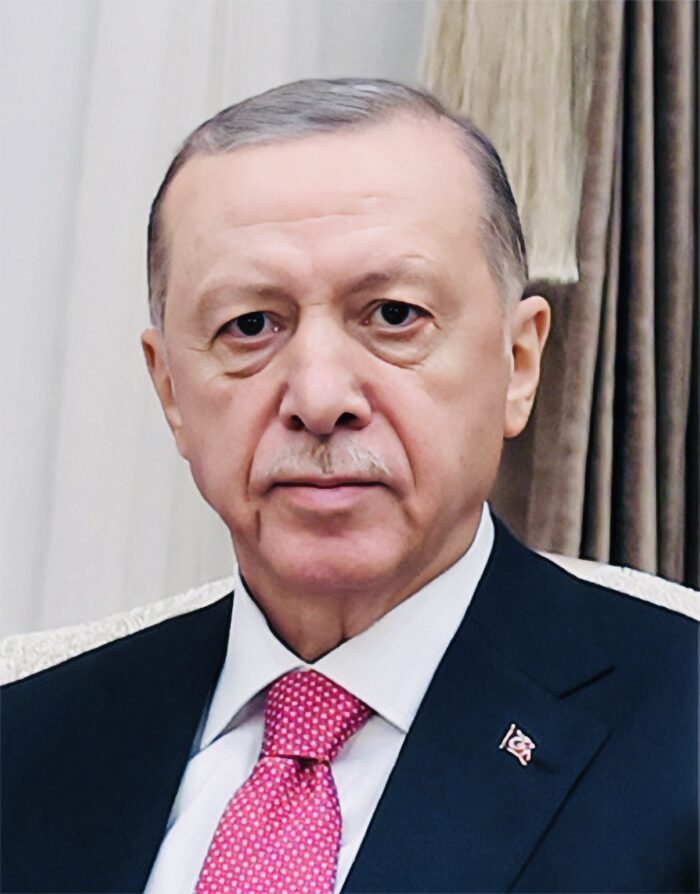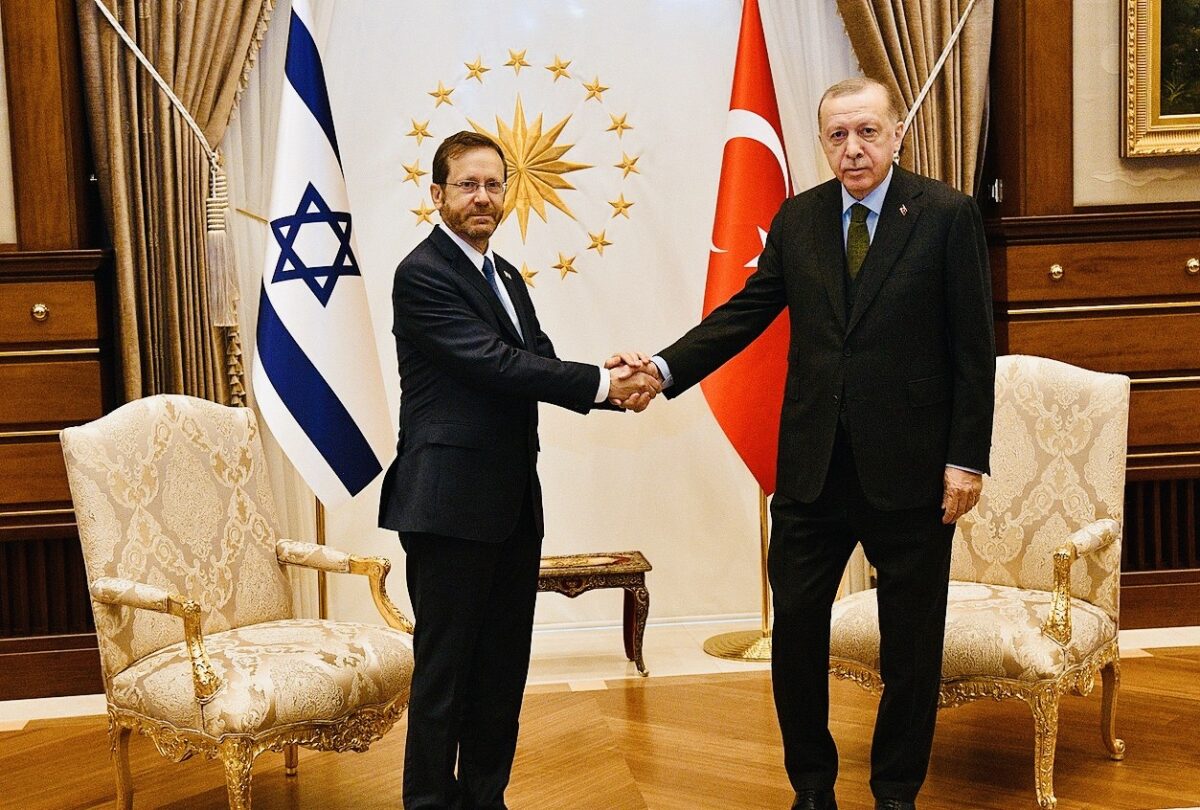Recep Tayyip Erdogan is a hopeless case as far as Israel is concerned. Turkey’s impetuous president is and has been extremely and unfairly critical of Israel since gaining national office in 2003.
Time and time again, he has hurled gratuitous insults at Israel to satisfy his Islamic base at home, curry favor with the Palestinians, and burnish his image in the Muslim and Arab worlds. This is not the kind of behavior one expects from the leader of a nation that exerts considerable influence in the Middle East.
Unfortunately, he was at it again on March 9, a day before the Muslim holy month of Ramadan.
In a fiery speech in Istanbul, he reiterated his support for Hamas, which has been branded as a terrorist organization by a host of countries ranging from the United States and Canada to Australia and Japan. And in another dig, he compared Prime Minister Benjamin Netanyahu’s government to Adolf Hitler’s Nazi regime.
“No one can make us qualify Hamas as a terrorist organization,” he declared in no uncertain terms. “Turkey is a country that speaks openly with Hamas leaders and firmly backs them.”
Erdogan supports Hamas despite the horrific crimes its bloodthirsty gunmen perpetrated in southern Israel five months ago. On October 7, some 3,000 terrorists wantonly slaughtered roughly 1,200 Israelis and foreigners, raped and sexually assaulted countless women, abducted 250 hostages, and burned and pillaged homes in kibbutzim, towns and army bases.

Not content with glorifying Hamas, Erdogan set his sights on Netanyahu, likening him to Hitler, Benito Mussolini and Joseph Stalin and comparing Israel’s just and necessary military campaign to genocide, an accusation that holds no water and has yet to be proven by its critics.
Since the eruption of the Israel-Hamas war and the outbreak of the humanitarian crisis in Gaza, for which Hamas is largely responsible, Erdogan has continually vented his spleen at Israel. He has done so without having condemned Hamas’ murderous rampage and in the knowledge that Hamas opposes a two-state solution, which Turkey keenly endorses.
In accordance with his ingrained anti-Israel prejudices, he has condemned Israel as a “terrorist state,” called Netanyahu “worse than Hitler,” and drawn an analogy between Israel’s treatment of the Palestinians in Gaza and the transport of Jews to Nazi extermination camps on Poland.
These comparisons are not only historically wrong, but moronic. Yet Erdogan constantly returns to these outlandish themes. During Israel’s second cross-border war with Hamas in 2014, he absurdly claimed that Israel keeps “Hitler’s spirit alive.”
As a result of his diatribes, Israel’s relationship with Turkey has deteriorated yet again. With the eruption of the Gaza war, Israel and Turkey recalled their respective ambassadors in Ankara and Tel Aviv, the third time this has happened since the Mavi Marmara incident in May 2010, during which Israeli commandos killed nine Turks aboard a Turkish vessel attempting to break Israel’s understandable blockade of Gaza.

With the assistance of the United States, Israel and Turkey mended their relations a few years later. But in 2018, amid Hamas-provoked disturbances along Israel’s border with Gaza, Turkey petulantly withdrew its ambassador in Israel once again.
In a gradual rapprochement fuelled entirely by self-interest, Turkey renewed its bilateral relations with Israel in the summer of 2022. This occurred after President Isaac Herzog visited Ankara and the then Israeli prime minister, Yair Lapid, met Erdogan in New York City.
The thaw in Israeli-Turkish ties was capped by Netanyahu’s cordial meeting with Erdogan in New York in September 2023.
Due to Erdogan’s unjustifiable pique, the advances forged by Israel and Turkey in the past year and a half have come to a screeching halt.
If he had been a normal politician, Erdogan would have criticized Israel’s military operation in Gaza and left it at that. But consumed by pro-Palestinian sympathies, he crossed a red line and broke what was being incrementally fixed by Israeli and Turkish diplomats in Turkey and Israel.
Israel and Turkey have common short-range and long-range geopolitical interests in the Middle East. They run the gamut from the export of Israeli oil to European markets via Turkish pipelines to the containment of Iran, the region’s preeminent Shi’a power.
A Turkish partnership with Israel, though, cannot be pursued constructively unless Turkey has a stable and reliable leader. Erdogan, regrettably, is anything but that, notwithstanding his experience as prime minister and president over two decades.
On March 8, he announced that he intends to step down soon. One can only hope that his successor will better be able to navigate the twists and turns of Turkey’s useful but complex relations with Israel. Erdogan certainly fell far short of the mark.

